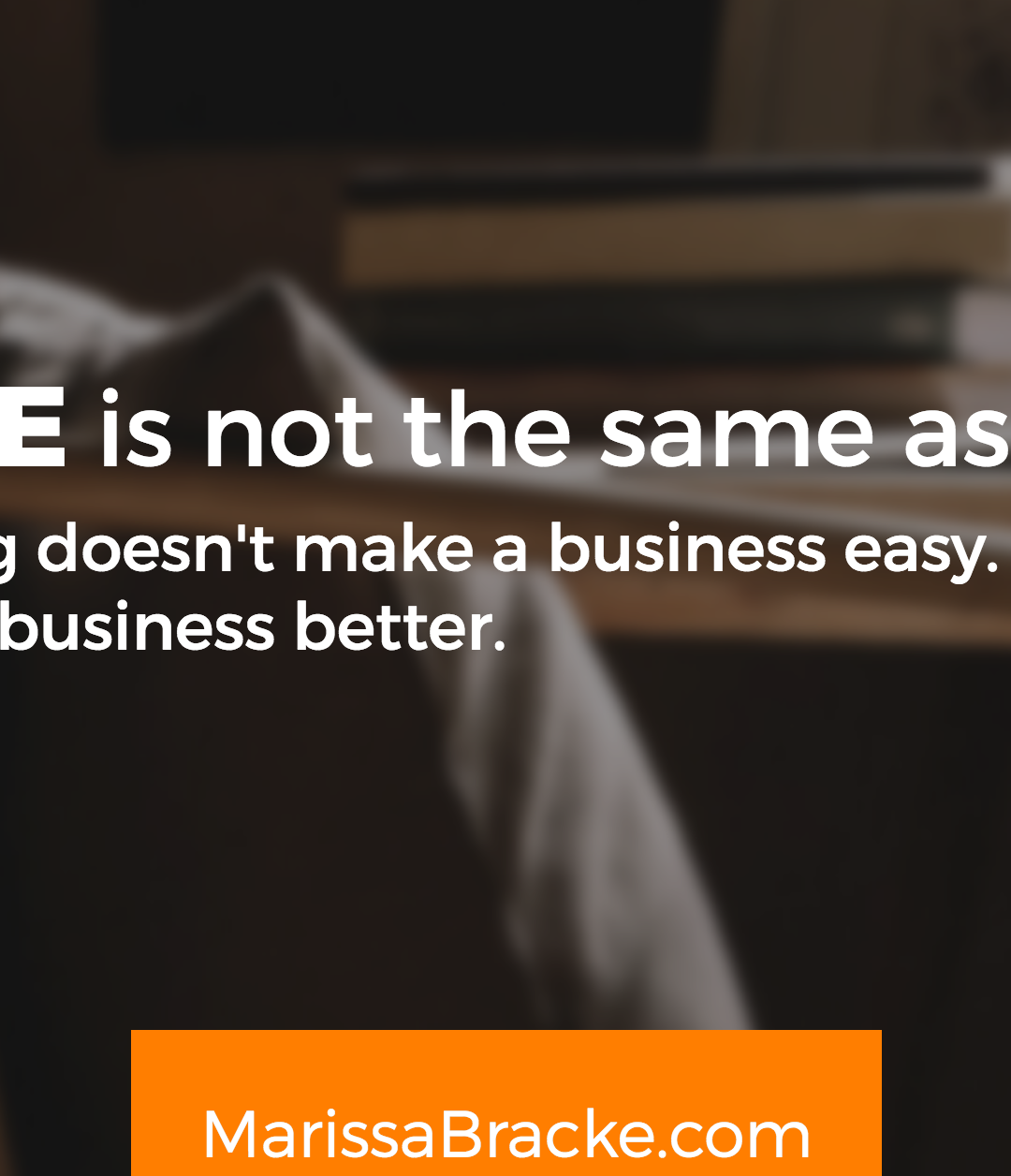Simple and easy are used as synonyms, and they usually shouldn’t be.
Simplifying your business means (a) identifying what is necessary and what matters, and (b) eliminating the rest.
And let’s be very clear:
Simplifying your business does not mean that everything suddenly becomes easy.
Simple and easy are not the same thing.
Let’s take an example.
Suppose I tell you I want you to beat Michael Phelps in a freestyle swimming race.
This is a simple request: All you have to do is swim from one end of the pool to the other end of the pool before Michael Phelps does.
It’s incredibly simple.
But is it easy?
I haven’t personally attempted it, but given the number of medals that man wears around his neck, I feel safe in declaring that getting to the end of the pool before he does is a helluva long way from “easy.”
When I ask you to beat Michael Phelps in a freestyle swimming race, I have given you a simple request. Not an easy one. There’s a significant difference.
So if you think of “simple” and “easy” as synonyms, stop now.
In your business, you want things to be as simple as possible.
Some examples of making things simple in your business include:
- There are only as many people on your team as truly need to be — and no more. (And that number might be one or two — big teams do not mean successful businesses.)
-
There are only as many services offered as make sense for the business, and no more.
-
There are only as many items in your website navigation as are actually useful to your website visitors, and no more.
-
You’re only spending money on those monthly services, coaches, and information products that you actually need, and no more.
-
Your processes and systems cover everything they need to for your business, not everything they possibly could for any business ever.
The focus in each of these examples is not “How do I make things easy?” Instead, the focus is on eliminating what is not necessary and what does not matter.
You'll often wind up making things exponentially easier for yourself by simplifying your business — but you won't wind up trouble-free.
The process of simplifying your business does not eliminate all challenges.
Eliminating what you don’t need and what doesn’t truly matter to your business and its clients won't end your current challenges. And it won't head off all future difficulties.
The benefit of simplifying your business is not that it stops being hard.
The benefits of simplifying your business are:
- You get rid of many unnecessary challenges, and you prevent many more from occurring.
-
You create mental and emotional (and even financial) space that was being taken up by the complications. You can now use that space to better direct and manage your business.
-
You can focus on fixing the challenges that do arise by addressing the areas that matter. Your ability to troubleshoot is no longer weighed down by peripheral considerations and tangential domino effects.
You're not simplifying to make business easy — that's not a realistic expectation.
But by simplifying you avoid making business harder than it needs to be. You prevent business from being more costly than it needs to be. Or more prone to burnout than it needs to be.
Those are absolutely realistic expectations.
Simplifying doesn't make businesses easier. It makes them healthier: more stable and more resilient. And healthier businesses are better businesses.
